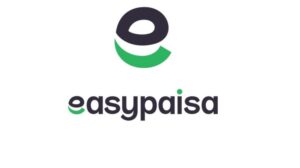The Philippines Digital Nomad Visa has introduced new opportunities for remote professionals from around the world, including Pakistan. With this initiative, foreigners can live and work in the Philippines for up to one year while enjoying its lively cities, tropical islands, and rich culture.
By offering a legal pathway for long-term stays, the Philippines aims to attract skilled professionals who want to combine their careers with travel and exploration.
Who Can Apply?
Digital nomads are people who earn through remote jobs or freelancing while travelling from one country to another. For them, a café in Cebu, a co-working hub in Manila, or even a peaceful corner in Davao can become an office, as long as Wi-Fi is available.
To qualify for the visa, applicants must:
- Be at least 18 years old.
- Show proof of remote employment or freelance work with income from outside the Philippines.
- Provide evidence of stable earnings.
- Have no criminal record.
- Hold valid health insurance for their stay.
- Carry a passport from countries with reciprocal arrangements with the Philippines.
- Avoid seeking local employment.
These conditions ensure that remote workers add value to the economy without taking local jobs.
Why Pakistanis Should Consider the Philippines
For Pakistanis exploring affordable yet attractive work destinations, the Philippines offers:
- Lower cost of living compared to many Asian nations.
- Beautiful landscapes, from Palawan’s beaches to Banaue’s rice terraces.
- English proficiency, making communication smoother.
- Warm hospitality, with Filipinos known for their friendly nature.
- Strategic location, allowing easy travel across Southeast Asia.
By launching this programme, the Philippines joins other countries like Portugal, Estonia, and Dubai in catering to global remote workers.
READ MORE: Moldova Nomad Visa: Big Opportunity for Pakistanis
Other Long-Term Visa Options
The Philippines also provides several visas tailored for specific groups:
- Special Resident Retiree’s Visa (SRRV): For retirees seeking permanent residence.
- Student Visa: For international students in local institutions.
- Work Visa (9G): For foreigners hired by Philippine companies.
- Special Non-Immigrant Visa (47(a)(2)): For investors and workers under agreements.
Conclusion
With its Digital Nomad Visa and fresh e-Visa facility, the Philippines is reshaping its tourism and remote work appeal for 2025. For Pakistanis looking for a mix of affordability, adventure, and career flexibility, this Southeast Asian nation offers a strong new option.









